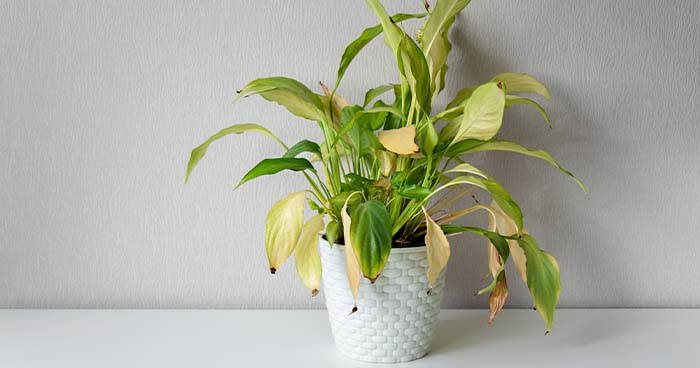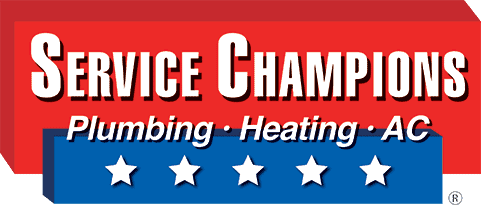Gas Leak in the House? Not on My Watch
If you smell gas, there’s a good chance your home may have a gas leak. If you’re reading this because you’re worried about a possible gas leak, don’t take any chances. Head outside and call 911 — even a small amount of leaking gas creates a danger to your health and could lead to an explosion.
When it comes to gas leaks, prevention is better than any cure. The best way to prevent a leak is to regularly check your household appliances and keep up with your HVAC maintenance.
Signs You Have a Gas Leak
Here are a few tried and tested signs that can indicate a leak:
- The smell of rotten eggs
One of the first signs is an unpleasant smell — like the smell of rotten eggs. Natural gas is odorless, but the gas inside your household appliances, like your stove and furnace, contains a chemical called mercaptan. The mercaptan is what gives the gas the smell — horrid for your nose but excellent for detecting gas leaks.

- Plants suddenly dying
A gas leak can lead to reduced oxygen levels, which is bad news for plants (and humans). If all your plants start to die, your home may have a gas leak.

- Hissing sounds from the furnace
If you suspect a leak in your furnace, shut off the main power source and turn off the emergency shutoff valves. Then, listen for a hissing sound coming from the unit.
What to Do If You Think You Have a Gas Leak
If you think you have a leak, you need to act quickly:
- Evacuate your home or building
If you smell gas, leave your home or building immediately. Don’t turn off any appliances, and make sure all doors and windows are open on the way out. Do not use any electrical devices, phones, or light switches — do NOTHING that could ignite a spark. Get everyone out of the house as quickly as possible. You should NOT attempt to locate the source of the leak yourself. Leave that job to an experienced professional who knows how to handle it safely.
- Call 911 as soon as you can
Gas leaks are dangerous situations that require immediate help from professionals. Unfortunately, gas companies don’t have the resources and capability to respond to a leak straight away. The emergency services know how to react quickly and safely.
- Stay away until the problem is fixed
Don’t go back into your home or building until you’re sure the leak has been fixed. Instead, wait for the emergency services to tell you it’s safe.
The Consequences of an Untreated Gas Leak
If in doubt about a gas leak, always seek professional help or it could lead to the following:
- House fires and explosions
Reports from the National Transportation Safety Board (NTSB) state that an estimated average of 4,200 home structure fires per year start with the ignition of natural gas. Even more worrying is that the report shows that most major gas incidents involved some type of leak. Therefore, regular maintenance of household appliances, like HVAC maintenance, is key in reducing these alarming figures.
- Major health issues
In addition to causing house fires, gas leaks can seriously affect your health. When inhaled, natural gas can deprive your body of oxygen and even cause death. The Centers for Disease Control and Prevention (CDC) estimates that carbon monoxide is responsible for approximately 430 deaths each year in the U.S.
How to Prevent a Gas Leak
- Routinely book a HVAC tune-up and keep on top of HVAC maintenance
A simple way to avoid gas leaks is to schedule regular HVAC tune-ups to keep your home’s heating and cooling systems running smoothly.
- Check for Gas Leaks Yourself
You can check for gas leaks in your home yourself with a simple test. We recommend testing for gas leaks every six months to ensure your family’s safety. Grab yourself some soap and water. This is the most common method to test for leaks. Mix up soapy water and apply it to joints and other areas that could leak. If you spot bubbling, it indicates a leak. Better still, buy an electronic sniffer device. They’re easy to use and extremely sensitive to small amounts of natural gas. The downside is that they can be expensive — sometimes hundreds of dollars.
- Replace old gas fittings
If you’re unsure whether you have old gas fittings or not, it’s a good idea to look into replacing them no matter what. Your life (and your house) will be better off without the very real risk of a gas explosion. If you feel uncomfortable replacing gas fittings, hiring a professional plumber is the way to go. Any potential cost savings from DIYing it are canceled out by the dangers of amateur gas pipe tinkering.
Keep your family safe by speaking to the experts at Service Champions about all your HVAC maintenance needs.

